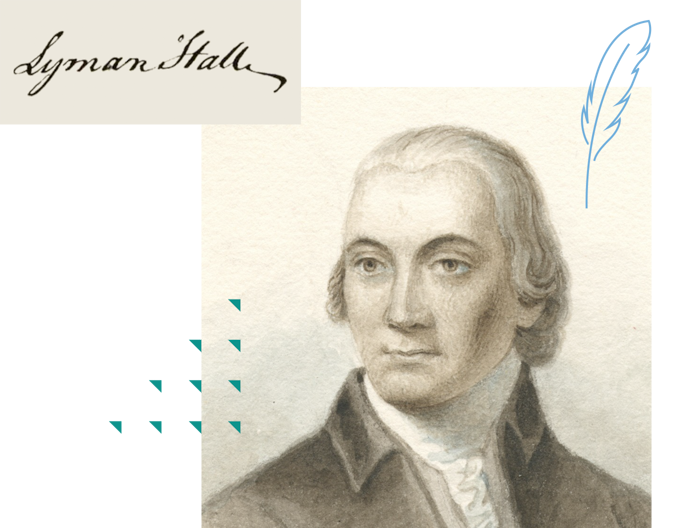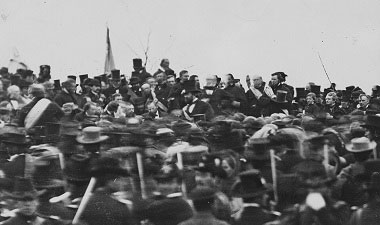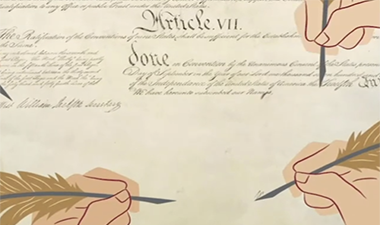Summary
Lyman Hall was a doctor who signed the Declaration of Independence. The British burned his hometown during the war. He later became Connecticut’s governor.
Lyman Hall | Signer of the Declaration of Independence
2:25
Biography
Lyman Hall, the son of John and Mary Street Hall, was born on April 12, 1724, in Wallingford, Connecticut. His father was a minister; his mother the great- grand daughter of a minister and his uncle a minister as well. After graduating from Yale College in 1747, Lyman would follow in the family tradition and in 1749 was ordained by the Fairfield West Consociation of the Congregationalist church. In 1751, however, he was dismissed by the Consociation following charges of immoral conduct. He confessed to his sin, declared his intention of repentance, and was restored to the pulpit. But he decided after two years to give up his ministry and studied medicine to receive the necessary degree.
In 1752, Hall married his first wife who died the following year. In 1757 he married once more, this time to Mary Osborne. Together they moved to South Carolina where a group of Congregationalist worshippers had created a community in Dorchester, near the city of Charleston. Here, Hall established his first medical practice. When the community decided to move to Georgia, Hall went with them. He soon became a prominent figure in the newly created town of Sunbury.
In the years leading up to the Revolution, the parish in which Sunbury was located was an anomaly in an otherwise highly conservative colony. Loyalist sentiment ran high in Georgia and the colony did not send any delegates to the First Continental Congress. Hall used his influence to persuade his parish to send a delegate to the Second Congress—and he was chosen to serve. Until two more delegates from Georgia were chosen, Hall abstained from voting on any resolution or proposal that was to be decided by a vote of colonies, but when Button Gwinnett and George Walton arrived, the three delegates readily signed the Declaration of Independence.
In January 1779, Sunbury was burned by the British. Hall and his family fled north and did not return until the British defeat and their evacuation in 1782. The Halls settled in Savannah. Lyman was elected governor of the state in 1783 and served for one year before resuming his medical practice. During his term he advocated chartering a state university; in 1785 the University of Georgia was established.
In 1790, Hall moved to a plantation near the South Carolina border. It was here that he died at the age of 66. His wife and their only son died within the following year. On his gravestone, he was described as a patriot and a “T rue Christian and an Honest Man.”








